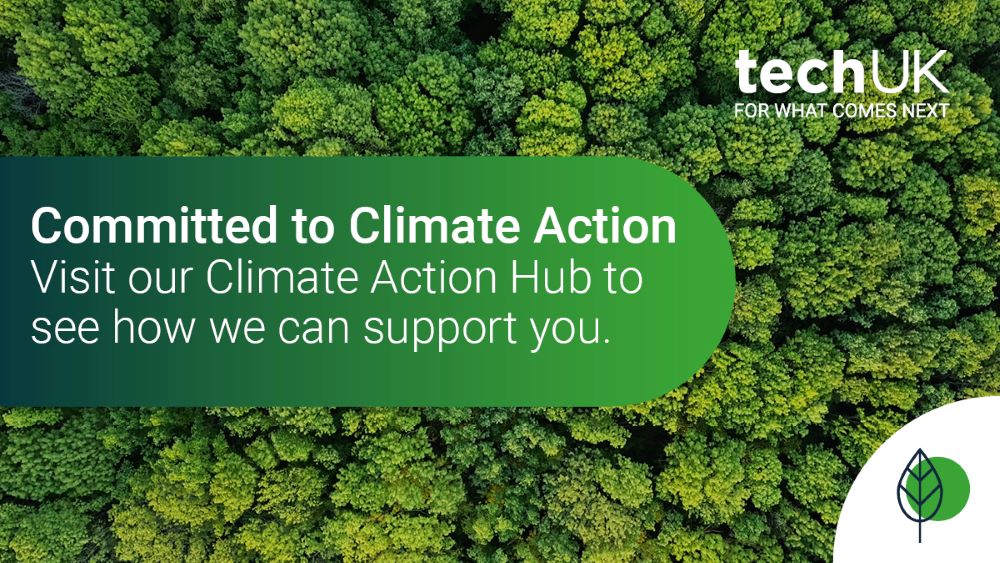Driving Change for a Sustainable Future (Guest blog by IBM UKI)
According to the International Energy Agency, the impacts of the pandemic, disruptions to global supply chains, and diversion of fiscal resources to keep food and fuel prices affordable, have affected the pace of progress toward the United Nation’s Sustainable Development Goal (SDG 7) of ensuring access to affordable, reliable, sustainable and modern energy by 2030. Advances have been impeded particularly in the most vulnerable countries and those already lagging in energy access.
Earlier this year, we launched The IBM Sustainability Accelerator, a 2 year pro bono social impact program that applies our technologies, such as hybrid cloud and artificial intelligence, and an ecosystem of experts to enhance and scale nonprofit and government organisation interventions, helping populations especially vulnerable to environmental threats including climate change, extreme weather, and pollution. The first cohort was focused on sustainable agriculture.
Clean energy partners
This week we announced our second cohort, related to clean energy. These partners were selected for their commitment to support communities who are especially vulnerable to the impact of environmental change, and their ability to increase access to affordable clean energy services. The organisations below will look to deliver projects with local resources, in local languages, and through our local representatives. This should bring us closer to the needs of organisations and their stakeholders, enabling us to provide field-ready assets to support local communities and deliver local outcomes.
United Nations Development Programme (UNDP): UNDP is working with IBM to increase access to sustainable, affordable and reliable energy in African countries, focusing on those furthest left behind. The goal is to forecast electricity access to better guide policy and investment decisions, using UNDP’s technical knowledge and IBM’s artificial intelligence and geospatial analytics.
Sustainable Energy for All: We are working with Sustainable Energy for All to build an intelligent model to project energy needs based on current and future human activity. This model will be designed to help to address key development challenges (e.g., lack of energy access and poor healthcare) and support the development of robust infrastructure planning, such as electrification plans. IBM machine learning and IBM Cloud technology and expertise will be used to build and scale open-access datasets and an energy needs model using temporal and spatial data. Kenya and India are being explored as the first regions to pilot the model.
Net Zero Atlantic: Net Zero Atlantic is collaborating with IBM to create an interactive digital tool that will geospatially display environmental and socioeconomic impacts of possible energy system futures for Nova Scotia. Ultimately, the goal is for Indigenous communities in Nova Scotia to leverage advanced modeling capabilities to inform their input into energy and development planning. The tool aims to be easy-to-use, locally relevant and time efficient. It will be designed to produce easy-to-understand visual results using IBM technology such as the IBM Environmental Intelligence Suite and IBM Cloud.
Miyakojima City Government: The Miyakojima City Government is working with IBM to support the development of a renewable energy strategy including a microgrid on Miyakojima Island, a distant community facing severe climate issues due to typhoons in Japan, with the goal of helping their residents, who rely on a clean local environment for the tourist industry and agriculture. Miyakojima City Government and IBM will collaborate to leverage technologies such as IBM Environmental Intelligence Suite weather data and IBM Cloud to model electricity demand and advise energy infrastructure development.
Environment Without Borders Foundation: Environment Without Borders Foundation’s collaboration with IBM will be aimed to develop a platform to forecast, track, and communicate clean energy usage options in Egypt. The goal is to enable resilient and sustainable infrastructure and operations for clean energy in Egypt, helping residents of remote villages for whom energy is currently both expensive and unreliable. The clean energy management platform will leverage IBM Environmental Intelligence Suite and IBM Cloud.
Driving change with partners
With the IBM Sustainability Accelerator, we are convening experts and using the power of science, technology and innovation to help tackle environmental issues while helping communities address societal needs. As an organization, IBM has a history of more than 50 years of environmental responsibility, with our first corporate environmental policy in 1971, and in 2021 we committed to achieving net zero greenhouse gas emissions by 2030. These new IBM Sustainability Accelerator partnerships can help to continue to drive innovation and technological change, with the clean energy cohort helping communities vulnerable to climate change, and providing equitable access to sustainable energy resources. This not only helps the world achieve the goal of UN SDG7 but also helps in the larger global energy transition.
techUK – Committed to Climate Action
By 2030, digital technology can cut global emissions by 15%. Cloud computing, 5G, AI and IoT have the potential to support dramatic reductions in carbon emissions in sectors such as transport, agriculture, and manufacturing. techUK is working to foster the right policy framework and leadership so we can all play our part. For more information on how techUK can support you, please visit our Climate Action Hub and click ‘contact us’.



